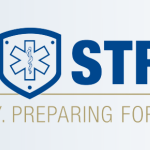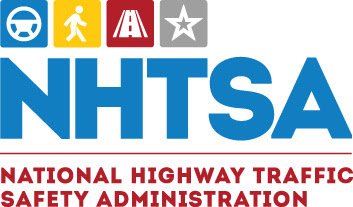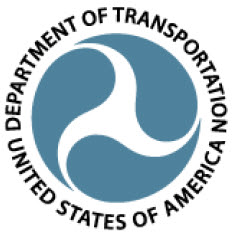Supplementary Information
On October 13, 2023, NHTSA published a RFI to obtain public comments to inform EMS Education Agenda 2050, and request responses to specific questions provided in this document. For convenience purposes, NHTSA is republishing introductory information, background materials and questions from its RFI in this notice.
I. Introductory Information
In 2012, the National EMS Advisory Council (NEMSAC) convened a national roundtable meeting on EMS Education Agenda for the Future: A Systems Approach. In a 2014 report on these proceedings, NEMSAC advised that stakeholders at the State and local level had just begun to experience the full impact of the evolution toward a national integrated system of education for EMS personnel. While stakeholders were reticent to move forward with a new education agenda, they did provide feedback about themes that should be considered in the future publication. From the feedback collected at the meeting, NEMSAC developed recommendations to be used in the eventual re-envision of the agenda for EMS. These recommendations are summarized below:
- Educational content should retain the flexibility accorded by the National EMS Education standards, but programs should use nationally recognized evidence-based guidelines to drive local curriculum development.
- The National EMS Information System data, evidence-based research, and practice analyses should be sourced in developing evidence-based guidelines and curriculum.
• Mobile Integrated Healthcare has received considerable attention from the EMS Community. This and other alternative community-based healthcare delivery models (of the future) should evoke an expanded foundational knowledge and critical thinking capabilities that will poise future EMS practitioners to be able to evolve with the changing healthcare system or rapidly adjust to emerging healthcare crises.
- EMS educators should begin a career in academia with expertise in adult learning, educational theory, curriculum development, and competency evaluation but also possess experiential knowledge in evidence-based care.
In the 10 years since NEMSAC’s roundtable meeting, the national EMS education system continued to evolve—especially during the COVID–19 pandemic. In late 2021, the Federal Interagency Committee on EMS (FICEMS) began sponsoring listening sessions to inform a consensus-driven, national report entitled, FICEMS: EMS and 911 COVID–19 Response White Paper. This publication cited challenges and solutions collected during stakeholder listening sessions for the EMS education system. Among the challenges, EMS education stakeholders cited scarcity (in some cases deficits) in resources for education, rigidity of curriculum delivery modalities, the increased employer demands on students, and inconsistent or delayed responses to the needs of the national EMS education system as major contributors that led to the breakdown in the EMS workforce pipeline.
Prior to the COVID–19 pandemic, NHTSA published EMS Agenda 2050: A People-centered Vision for the Future of EMS (Agenda 2050). This collaborative project set a vision for a people-centered EMS systems that serves every individual in every community across the Nation. Later this year, NHTSA and its partners will begin a new project to develop EMS Education Agenda 2050. This project will not replace but build upon the achievements of the 2000 EMS Education Agenda for the Future: A Systems Approach to lead a national conversation around the future vision for EMS Education and EMS as a profession.
II. Background
NHTSA, in partnership with Health Resources and Services Administration, published EMS Education Agenda for the Future: A Systems Approach ( Education Agenda ) in 2000. This document was founded on the broad national EMS education system concepts introduced in the EMS Agenda for the Future (1996). The Education Agenda described a consensus vision of an EMS education system with a high degree of structure, coordination, and interdependence. It proposed a less prescriptive system that offered educators flexibility in creating a student-centered learning environment and a process for accommodating future advancements in technology and medicine. The proposed system maximized efficiency, consistency in instructional quality, and entry level graduate competency by prescribing a high degree of structure, coordination, and interdependence. To achieve this vision, the education system of the future centered on five integrated primary components:
- National EMS Core Content
- National EMS Scope of Practice Model
- National EMS Education Standards
- National EMS Education Program Accreditation
- National EMS Certification
After the Education Agenda was published, stakeholders began implementing their respective integrated system components. Almost 25 years later, the national EMS education system has successfully evolved into one that exemplifies both consistency and flexibility. System interdependencies have helped to avoid duplication of effort in curriculum and education program development, evaluating the minimum competencies of graduates, certification and licensing processes, and facilitation of practitioner reciprocity.
In 2020, the EMS education system interdependencies modernized by the Education Agenda were tested. Challenges presented by the COVID–19 pandemic forced a variety of adaptations. Traditional education programs reported a lag in students’ capabilities of achieving the programmatic competencies requirements for graduation. The lag was attributed to a variety of causes including a focus on pandemic response activities over training and education, employer demands on working students, and the rigidity of in-person, classroom-based education delivery models. After the majority of programs adjusted to the challenges, lags in graduation were cured, and students achieved programmatic competencies at rates similar to those pre-pandemic. The response to the pandemic did not impact education programs only. The impact to EMS agency daily operations was felt as well. During the COVID pandemic, agencies experienced increases in EMS activation and response rates which created additional stressors for student EMS practitioners already working in a high stress job environment but also enrolled in an EMS education program. These stressors were a major contributor to a migration of practitioners away from the EMS workforce. Agencies and organizational stakeholders asserted that it could be education program graduation requirements causing breakdown in the workforce pipeline; however, there were no observed decreases in graduation or certification testing rates. These observations prompt two questions: If graduation and certification testing rates have remained unchanged, why have agencies reported recruitment and retention issues? If graduates are not entering the EMS workforce, where are they finding jobs?
With agencies experiencing increased demand and a deficiency in qualified EMS practitioners to respond to it, service delivery models had to evolve. To bridge the gap in community-based care resources, community paramedicine and mobile integrated healthcare (CP–MIH) service delivery models increased in prevalence, and improvised training programs were used to close new job-specific competency gaps among existing EMS practitioners and individuals in training. Other themes brought to the forefront during the pandemic include addressing healthcare disparities; the use of EMS data as a tool for surveillance and nationwide quality of care improvements; and a greater value to having an EMS workforce that is not only equitable, inclusive, and accessible, but as diverse as the community it serves. These themes, evolving service delivery models, and the subsequent evolution of competencies needed by practitioners suggest that it is time for NHTSA to gather our partners to begin a new conversation about the future of EMS Education and EMS as a profession in the United States.
III. Questions Regarding EMS Education Agenda 2050
Responses to the following questions are requested to help plan the revision of the Education Agenda. Please be as specific as possible and as appropriate please provide references.
1. What are the most critical issues facing EMS education system that should be addressed in the revision of the EMS Education Agenda ? Please provide specific examples.
2. What progress has been made in implementing the EMS Education Agenda since 2000?
3. How have you used EMS Education Agenda ? Please provide specific examples.
4. As an EMS Stakeholder, how might a revised EMS Education Agenda be most useful to you?
5. What significant changes have occurred in the EMS education system at the national, Federal, State, and local levels since 2000?
6. What significant changes will impact the EMS education system in the next 25 years?
7. How might the revised EMS Education Agenda contribute to enhanced EMS for children?
8. How might the revised EMS Education Agenda support and/or promote data-driven and evidence-based improvements in EMS education systems and EMS practitioner practice?
9. How could the revised EMS Education Agenda enhance collaboration among EMS systems, health care providers and facilities, public safety answering points, public health, public safety, emergency management, insurers, and others?
10. How could the revised EMS Education Agenda be used to promote community sustainability and resilience?
11. How could the revised EMS Education Agenda contribute to improved coordination for disaster response, recovery, preparedness, and mitigation?
12. How could the revised EMS Education Agenda enhance the exchange of evidence-based practices between national, Federal (and military), State, and local levels?
13. How could the revised EMS Education Agenda support the seamless and unimpeded transfer of military EMS personnel to roles as civilian EMS providers?
14. How could the revised EMS Education Agenda support interstate credentialing of EMS personnel?
15. How could the revised EMS Education Agenda support improved patient outcomes in rural and frontier communities?
16. How could the revised EMS Education Agenda lead to improved EMS systems in tribal communities?
17. How could the revised EMS Education Agenda promote a culture of safety among EMS personnel, agencies, and organizations?
18. Are there additional EMS attributes that should be included in the revised EMS Education Agenda ? If so, please provide an explanation for why these additional EMS attributes should be included.
19. Are there EMS attributes in the 2000 EMS Education Agenda that should be eliminated from the revised edition? If so, please provide an explanation for why these EMS attributes should be eliminated.
20. What are your suggestions for the process that should be used in revising the EMS Education Agenda ?
21. What specific agencies/organizations/entities are essential to involve, in a revision of the EMS Education Agenda ?
22. Do you have any additional comments regarding the revision of the EMS Education Agenda ?
(Authority: 23 U.S.C. 403(b)(1)(A)(iv); 49 CFR 1.95; 501.8)
Issued in Washington, DC.
Nanda Narayanan Srinivasan,
Associate Administrator, Research and Program Development.
[FR Doc. 2023–25551 Filed 11–17–23; 8:45 am]



















